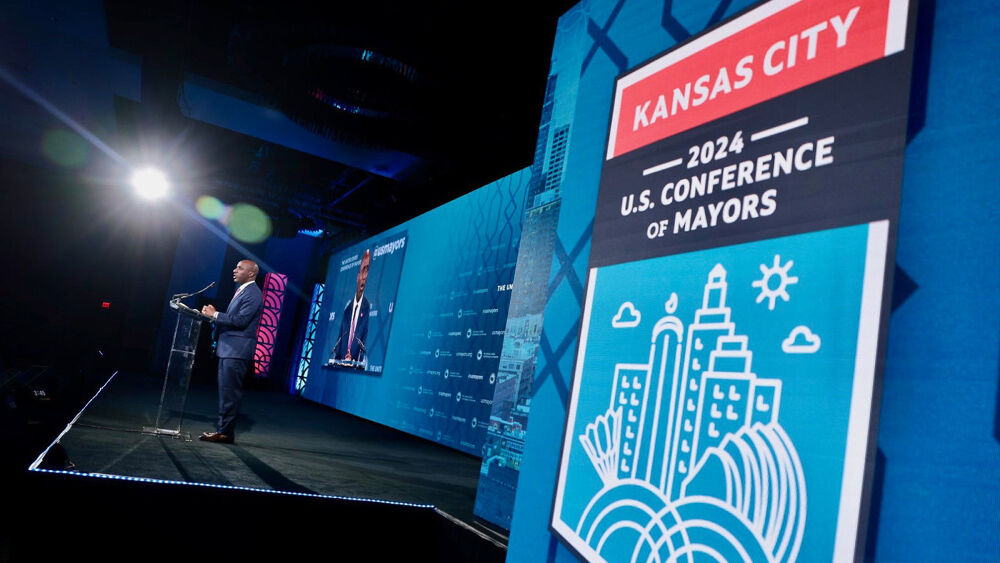Digital Opportunity
Comcast, U.S. Conference of Mayors Announce Ten Cities Receiving Grants in Digital Equity Challenge
Kansas City, MO
Today, Comcast Corporation and the U.S. Conference of Mayors (USCM) announced the winners of the Talent for Tomorrow: Digital Equity Challenge grant awards program at USCM’s 92nd Annual Meeting in Kansas City. Each city has demonstrated leadership and a commitment to expand digital training programs to help close the skills gap.
In the small cities category, Kinston, NC; Michigan City, IN; White Plains, NY; and York, PA, will each receive $75,000 grants. In the medium-sized cities category, Cleveland, OH; Little Rock, AR; and Richmond, VA, will receive $150,000 grants for their submitted projects. The cities of Charlotte, NC; Los Angeles, CA; and Portland, OR, in the large cities category, will receive $250,000 grants.
“Mayors are investing in economic development that lifts people up instead of leaving them behind,” said U.S. Conference of Mayors CEO and Executive Director Tom Cochran. “The Talent for Tomorrow Challenge grants will allow the ten cities to grow these programs and build on their success. By providing digital access and skills training, we will be able to build a stronger, more diverse, more equitable and inclusive workforce across the country. The Conference is grateful to have a committed partner in Comcast, as we work to create economic opportunity and communities where Americans can thrive.”
“America’s mayors know well that closing the digital divide is intrinsically connected to the economic competitiveness of our cities and towns,” said Dalila Wilson-Scott, Executive Vice President and Chief Diversity Officer of Comcast Corporation & President of the Comcast NBCUniversal Foundation. “The Talent for Tomorrow: Digital Equity Challenge will help ensure that more people, especially those most often left out of the digital economy, can take advantage of the opportunities that come with acquiring digital skills.”
Comcast is proud to deepen our partnership with the U.S. Conference of Mayors through this new initiative that will build on our shared commitment to digital equity by expanding workforce and job training programs for ten winning cities.
The Talent for Tomorrow: Digital Equity Challenge is a joint initiative of the USCM and Comcast’s Project UP, and it supports the launch and expansion of local workforce programs designed to grow college and career readiness, close the digital skills gap, advance economic mobility, and lay the foundation for generational wealth in under-resourced communities. An independent panel of judges selected by USCM reviewed applications and selected winners. To learn more about the program, see here.

Winners of the Talent for Tomorrow: Digital Equity Challenge, with Dalila Wilson-Scott, EVP and Chief Diversity Officer, Comcast. Through the challenge, a joint initiative of Comcast and the United States Conference of Mayors, we’re awarding a total of $1.5 million to 10 cities to support local workforce and jobs training programs.

"In order for us to transform into the economy of the future, we must adapt to innovation and new technology. The SOLVE Program will help Richmonders bridge the digital divide and prepare Richmonders for new opportunities,” said Levar Stoney, Mayor of Richmond, Digital Equity Challenge winner, pictured with Dalila Wilson-Scott, EVP and Chief Diversity Officer, Comcast Corporation.

Mike O’Bryan of Humanature, moderates the Workforce Development Panel and Best Practice Forum featuring Mayor Angie Nelson Deuitch, City of Michigan City; Mayor Frank Scott Jr., City of Little Rock; and Mayor Michael Helfrich, City of York, PA.

Quinton Lucas, Mayor of Kansas City, addresses attendees of the 92nd annual United States Conference of Mayors, which welcomed nearly a thousand mayors and their staff members to the city.

Hillary Louise Schieve, Mayor of Reno, NV and President of the United States Conference of Mayors, kicks off the day’s programming.

Mayors and other elected leaders convened to collaborate on issues impacting U.S. cities, including workforce development, education, and sustainability.
The following descriptions highlight each program and how the Talent for Tomorrow grants will be used:
2024 Digital Equity Grant Award Recipients
SMALL CITY WINNERS
MEDIUM-SIZED CITY WINNERS
LARGE CITY WINNERS
